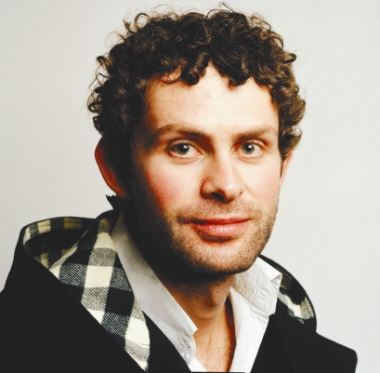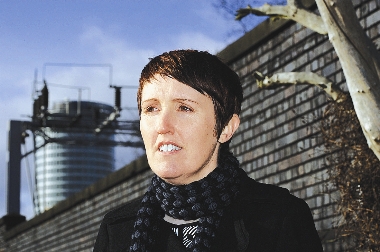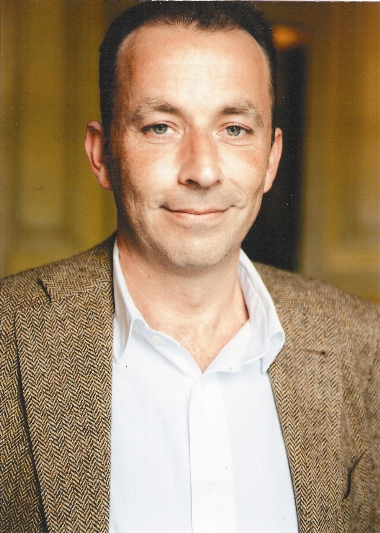


Cao Zhen
THREE bright new British regional novelists, Catherine O’Flynn, Raphael Selbourne and Ross Raisin, chatted with Shenzhen locals Friday night at a Shenzhen Book City salon, bringing a fresh breeze of British literature mostly known for Charles Dickens, Doris Lessing or J.K. Rowling.
“There’s a large quantity, but little quality, in contemporary British literature,” says Selbourne, who won the Costa First Novel Award 2009 with his debut novel “Beauty.”
“D.H. Lawrence once wrote: ‘The essential function of art is moral,’ but some of today’s novelists overlook social issues and just write for fun.”
“Beauty” tells the story of a young Bengali woman, fleeing from an arranged marriage, who finds help from a white working-class ex-offender in Wolverhampton, West Midlands of England. The Costa judges were full of praise for “Beauty,” declaring that the novel “captures the raw humanity of inner city life with extraordinary intensity.”
Given that he is from a white, educated middle-class Oxford background, Selbourne, 42, uses the title heroine’s naive but moral vision to show readers white Britons’ indifference, ugliness, drunkenness, sexual lust and much besides.
After studying politics at Sussex University, Selbourne moved to Italy where he was a translator and had what he described as “too much of la dolce vita.” In 2004, he moved to Wolverhampton, teaching maths and English to the longtime unemployed in a job center. In Wolverhampton, he was inspired by the people and their lives and finally found something stimulating to write about.
He joked at the Shenzhen salon that he hoped to land a job here and “let rip.” “China is an inspiring place, which can provide a rich source for me.”
Also inspired by work experience is O’Flynn, whose debut novel, “What Was Lost,” won the prestigious Costa First Novel Award in 2008. The novel received critical acclaim as an examination of the often lackluster and empty experience of modern life, contrasted with the energy and optimism of a young girl who goes missing in a Birmingham shopping center.
O’Flynn, 40, grew up in and around her parents’ sweets shop and has been a teacher, Web editor, ticket seller at a cinema box office after studying economics and anthropology at Manchester University. Her experience in an out-of-town shopping center and an HMV record store in Birmingham provided much of the material for “What Was Lost.” A spell working as a postwoman also gave her plenty of opportunities to observe the changing urban landscape, another feature of her writing.
O’Flynn says the book was rejected by every major London publisher before it was published by the small Birmingham-based Tindall Street Press, whose interests are away from London-based fiction. The press commits to stories with regional themes.
In July, O’Flynn published her follow-up, “The News Where You Are,” about a Birmingham TV news presenter haunted by disappearances. Like the first, it’s inherently Birmingham focused and makes readers nostalgic for the city’s people and demolished buildings.
“Birmingham is a city trying to re-create itself. With much of the 60s architecture demolished, the city is a combination of ambition and insecurity,” says O’Flynn.
She never wants to work in a job that takes over her time. “Full-time writing closes me off from the outside world,” says O’Flynn. “I hope in the future to write a novel set in Birmingham’s Chinatown which is near my house.”
Raisin’s views are similar to O’Flynn’s, saying that the biggest challenge for contemporary novelists is how to seek inspiration and how to make ends meet while writing. When the 31-year-old wrote his debut novel “God’s Own Country,” he was a bar waiter in London after having studied English at King’s College and creative writing at Goldsmith’s College.
In the Yorkshire-focused novel, Raisin tells the story of a lonely and troubled young farmer who, shunned by the local community, forms an unlikely friendship with the daughter of one of the newly arrived London families. He sifts his own new-coined words with Yorkshire dialect in this regional novel, dramatizing the conflict between city and country.
“The struggle between farmers and rich urban people may not only be found in Yorkshire, but also any rural community in Britain,” says Raisin.
The Yorkshire native was short-listed for the Guardian First Book Award for the novel and is writing a second book, to be published around the beginning of next year. He says the book begins with a man’s death on the streets before reverting to his Glasgow childhood where Raisin conducted research during writing.
|

